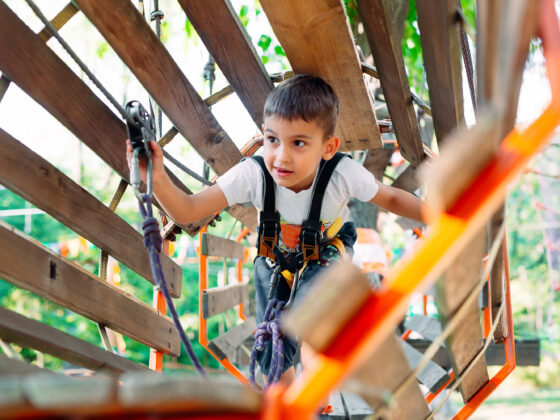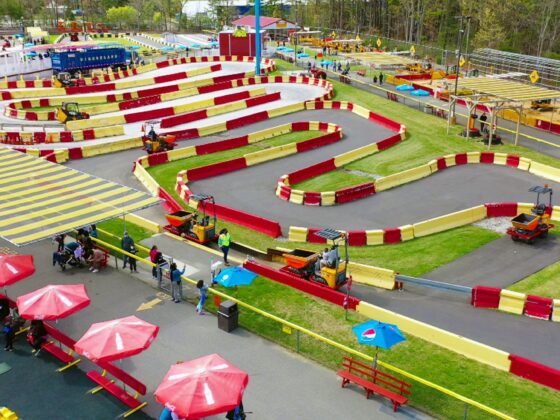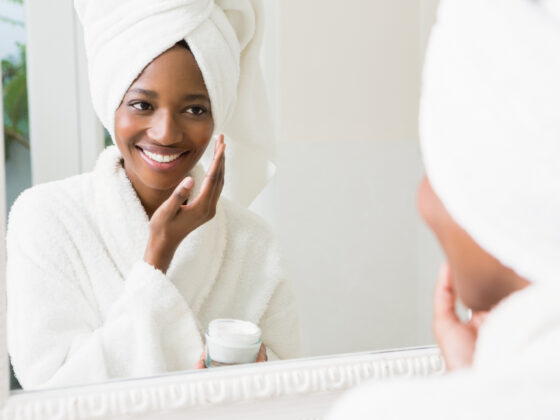It’s mid-summer, and while it’s high season to be outside, it’s also important to stay safe and healthy during this time. And, while you may have the basics down, everyone could use a brush-up (or learn something new), so we asked Clare L. Coda, MD, a board-certified doctor in Internal Medicine and Pediatrics, a member of RWJBarnabas Health Medical Group, to share some top safety tips and reminders for parents. From sun safety to water safety and everything in between, we’ve gathered what you need to know to have a fun (and safe) season. (featured photo credit: istock/FatCamera)

Summer is a fun time of year for families. What should families prepare for in terms of safety?
Kids out of school are typically more active and (hopefully!) outside, which is wonderful but also increases safety risks.
What are some sun safety tips parents need to keep in mind?
For sun safety, it’s important to keep babies under 6 months out of direct sunlight and in the shade and have them wear a wide-brim hat. Sunscreen isn’t “bad” per se, but babies have more sensitive skin and should ideally be kept out of direct sunlight. It’s best to limit sun exposure between 10 AM and 4 PM when the UV rays are strongest. For children older than six months, use a broad-spectrum sunscreen with at least 15 SPF or, better yet, 30 SPF. For anything higher than 30 SPF, more research is needed to show if those numbers actually offer any additional protection. Sunscreen takes time to absorb, so it’s important to apply 15-30 minutes before going outdoors (before leaving your home for the pool or beach). Remember to reapply every two hours to avoid sunburns.
What should parents be concerned with around pools and at the beach?
Drowning is the #1 cause of death for children aged 1-4, with most drownings occurring in home swimming pools. For those who have a home swimming pool, please consider alarms on the pool fence, house doors, and window guards. It’s also important to have your child take swimming lessons as early as possible, even as early as age 1. When a child is in or near water, make sure an adult is always watching without any distractions, such as a cell phone, or engaged in other activities. Life jackets are not a substitution for adult supervision. At the beach, sit near lifeguards on duty and keep an eye out for postings about water quality and rip currents. Out of the water, sandcastles are fun, but the hole should never be deeper than a child’s knee, and the sand holes should always be filled to avoid slips and falls.
What about insect safety during the summer?
Protecting yourself and your kids against insect bites is important as some insects, such as ticks and mosquitos, may carry disease. Ideally, long sleeves and socks may help prevent bites, but they can be too hot to wear. Using insect repellents is safe and effective, but minimize use for children under 2 years old since their skin is much more sensitive. The most effective ingredient is DEET, but it is best used in the lowest concentration possible and read the instructions on how to apply on exposed skin. “Natural” repellents are typically safe but aren’t proven effective by the EPA. Keep in mind that products with lemon oil or eucalyptus oil shouldn’t be used on kids younger than 3 years old.
Are there any tips for parents of older children?
If you have kids learning to ride bikes or have been riding for a while, wearing a bicycle helmet for every ride is crucial. The helmet should be worn squarely on top of the head, covering the forehead and sitting parallel to the ground. The chin strap should be snug below the chin, and the helmet shouldn’t move around to the head or slide over your child’s eyes when moving around. Helmets should be replaced every five years since the material degrades over time. It’s best to avoid a used helmet since you can’t know how old it is or if it has been in a crash or has been damaged.
For more safety tips this summer and all year round, visit rwjbh.org.
This post is sponsored by RWJBarnabas Health.









